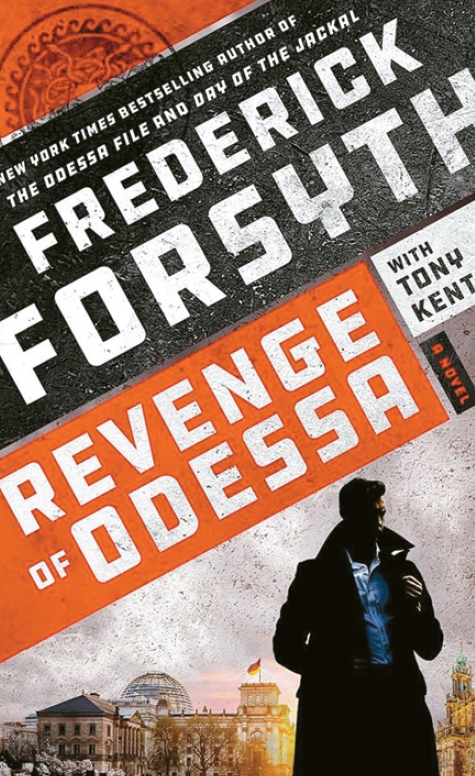
Frederick Forsyth, the last of the Cold War-era spy novelists still writing, is releasing a new book at age 87. The Revenge of Odessa follows The Odessa File, first published 53 years ago.
The Odessa File sequel is co-written with Tony Kent, a British author, criminal barrister, and former boxer. It hits shelves in the U.K. in August and arrives in the United States in October.
Grandson Takes the Lead
Unlike George Smiley or James Bond, Forsyth rarely brings back the same lead. This time, the story centers on Georg, the grandson of Peter Miller, the original book’s protagonist. Now a podcaster, Georg uncovers a plot by Odessa, a secret group of ex-SS officers aiming to revive Nazism.
The publisher has kept most details under wraps but confirmed Georg is tracking the network once pursued by his grandfather.
Fiction That Felt Real
The Odessa File became a bestseller for its fast pace and grounded conspiracy. Though fictional, the novel’s depth of research convinced many readers the Odessa organization was real.
The original featured actual figures. Nazi hunter Simon Wiesenthal appeared as Miller’s advisor. Eduard Roschmann, the “Butcher of Riga,” was portrayed as a fugitive. The book described him losing several toes while fleeing—something a Paraguayan coroner later confirmed after Roschmann’s death in 1977.

Reporter First, Novelist Later
Forsyth started as a journalist for Reuters and the BBC. His debut novel, The Day of the Jackal (1971), was written in just 35 days, inspired by a tip from a French security guard.
He didn’t stop at research. After the book’s success, Forsyth used the royalties to help fund a coup attempt in Equatorial Guinea in 1972. It failed, but the experience fueled The Dogs of War (1974), known for its detailed look at how black-market arms moved through customs to reach mercenaries.
Returning to a Complicated Legacy
While praised, The Odessa File drew criticism for its chaotic final act. Miller passed out at a key moment, villains escaped, and the Israeli agent’s role felt underdeveloped. The new book may offer a chance to close those gaps.
One controversial scene showed Miller torturing a source—a moment that shocked readers until Forsyth’s twist justified the act.
With The Revenge of Odessa, Forsyth returns to a story that blurred the line between fact and fiction. This time, a new generation steps into the shadows—chasing history that refuses to stay buried.
BY YOONHO NAM [yhnam@koreadaily.com]




